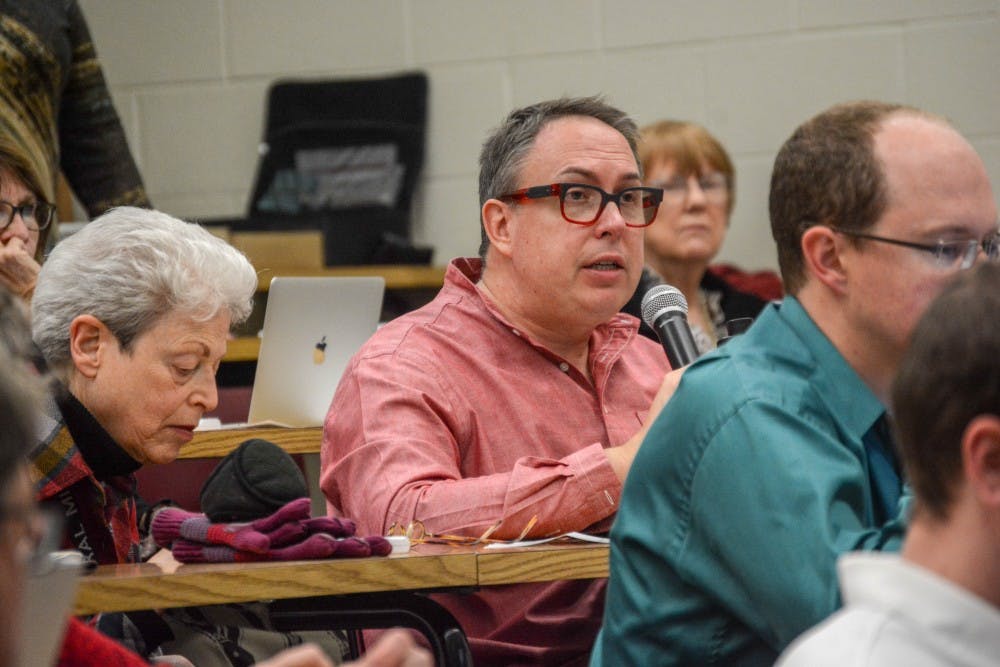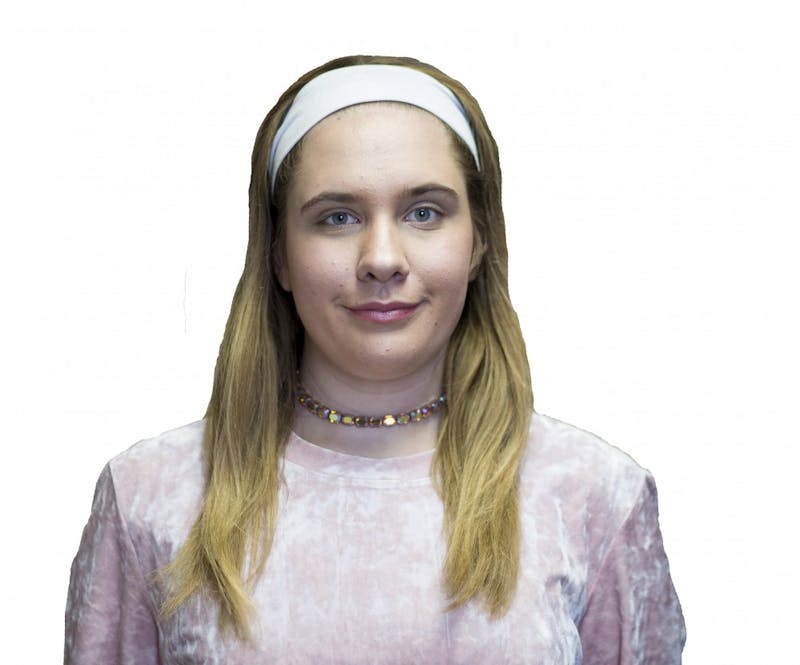Academic Senate discusses racial discrimination, fall break

Senator Michael Mamp takes part in a discussion about racial discrimination at the Academic Senate meeting on Nov. 20 in Pearce 127.
Faculty voiced immense concerns regarding the Central Michigan University's productiveness in combating racial discrimination and acts of supremacy during Academic Senate.
At the Nov. 20 meeting, several Senate members requested Provost Michael Gealt provide updates regarding the demands made by Australyah Coleman, President of the CMU chapter of the National Association for the Advancement of Colored People (NAACP).
After roommates in a Sweeney Hall dorm room received racist messages on their whiteboard earlier this November, Coleman's organization hosted a protest outside the residential building. During the event, which united more than 200 CMU community members, Coleman demanded the university require each student take a cultural course involving their major or minor.
In addition, she urged all faculty, staff, students and CMU Police members be required to attend a race and ethnicity training hosted by a certified third party. She said, on behalf of NAACP, partnering organizations and the four roommates, they expect demands to be "met or initiated within the next month."
Gealt also recognized the Nov. 19 incident, where cards exhibiting white nationalist propaganda from Patriot Front, a Texas-based white nationalist group, were discovered in several CMU buildings.
"Conversations continue," Gealt said. "This is something we just have to address as a university. This is not who we are and we just have to continue forward with addressing this."
Senator Maureen Eke, from the English language and literature department, said CMU has entered an "open season to attack and harass people who look different from the dominant population."
She said the latest CMU environment appears very toxic and hostile, and has made everyday journeys to work more daunting.
"Conversations themselves won't do. We need to do something much more proactive," Eke said. "This is problematic for those of us who do not look like the 'norm' on this particular space. (For all of those) working here (and) going to school here, (they are constantly) wondering when someone is going to do (them) harm."
Senator Melinda Kreth, from the English language and literature department, said the acts performed by the perpetrators of the two cases are definite examples of everything the university stands against, and said she emailed President Robert Davies suggesting more direct actions toward finding them.
"(I asked) why we aren't offering a cash reward for information leading to the identification of the perpetrators. I mean it's a crime...I even suggested we use some of that $225 (student services) fee to help pay for that reward," Kreath said.
Kreth said if the university wishes to offer a collegiate institution that is truly non-tolerant of racism and misogyny, they must take larger action in summoning the perpetrators forward and immediately dismissing them from CMU.
The conversation made way for oppositions against exemptions approved in April 2017, regarding academic requirements in subgroup 4A, which subjects all undergraduate students to taking a class centered on race and diversity.
The current language of CMU's pre-approved, academic bulletin allows for students pursuing a Bachelor of Arts (BA) degree and enrolled in a 102 level foreign language course or higher to be excused from the 4A requirement.
"I personally feel extremely uncomfortable with all of these opportunities for exemption built into our General Education program when I think we should be providing more opportunities and more required opportunities for students to learn," said Senator Michael Mamp, from the Human Environmental Studies department.
The Senate agreed to authorize a group of senators to investigate the issue and to evaluate possible impacts and conflicts of altering 4A exemptions.
The information will be submitted to the General Education Committee by 5 p.m. on Nov. 30 to determine new academic literature for students pursuing BA degrees.
Fall break legislation
The majority of the Academic Senate authorized support and approval of the Student Government Association's legislation to implement a fall break in the university's academic calendar.
The legislation requests three days off of classes during the average fall academic semester.
The legislation will be presented during the university's contract negotiation, which will be open to change during the spring and summer seasons.
This will allow for the break to possibly go into effect during the 2020-2024 academic periods.




